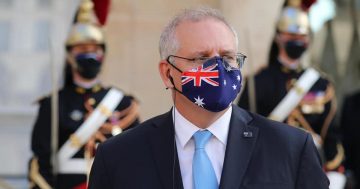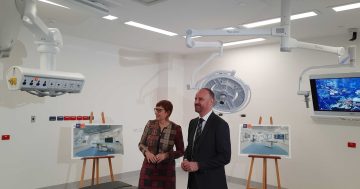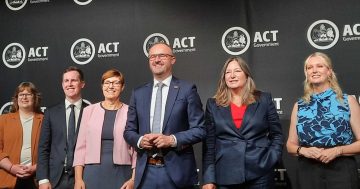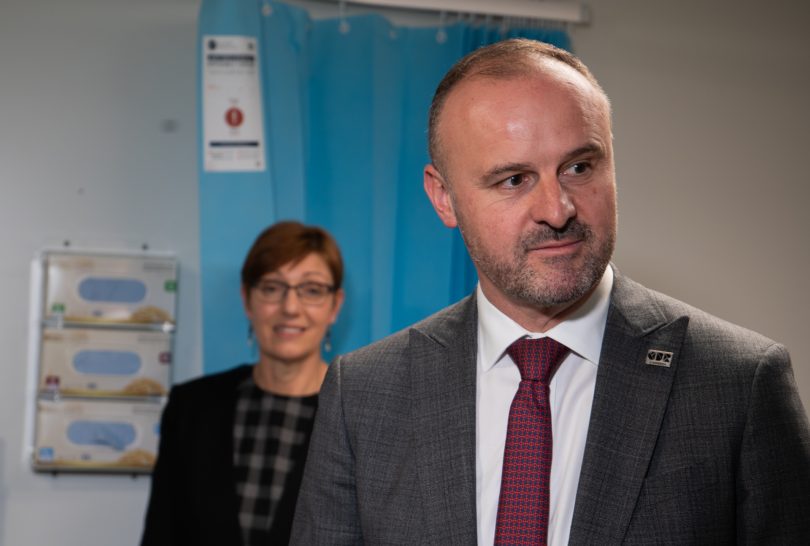
Chief Minister Andrew Barr said vaccines should not be mandatory for residential aged care and disability care staff unless there are compelling reasons. Photo: Dominic Giannini.
Canberrans will have access to income support payments from the Commonwealth in the case of a COVID-19 outbreak under a new deal struck at today’s National Cabinet meeting (4 June).
Disaster payments of $500 a week for people who work more than 20 hours a week, and $325 if they work less than 20 hours a week, will be available for any location declared a hotspot that enters a lockdown for more than seven days.
States and territories agreed to provide support to small businesses.
The announcement came after the Victorian Government pressured the Commonwealth for an income support payment as it entered its fourth lockdown a week ago. Melbourne’s initial seven-day stay at home order was extended yesterday for at least another week.
The extension of the stay at home orders also applies to people who have entered the ACT from all of Victoria under a new ACT health direction yesterday.
The number of people captured by the stay at home orders in the ACT increased by 40 to 580 today and the number of close contacts from NSW exposure sites grew to 62.
Seven close contacts from Victoria remain in isolation and 17 casual contacts are waiting for their COVID-19 test results to come through.
Chief Minister Andrew Barr is working with his state and territory counterparts to prevent further lockdowns by increasing vaccination rates for residential aged care and disability care staff.
Mr Barr said National Cabinet discussed whether vaccinations for staff at these facilities should be mandatory – a proposal pushed by Prime Minister Scott Morrison – but a final decision was postponed until further advice is received.
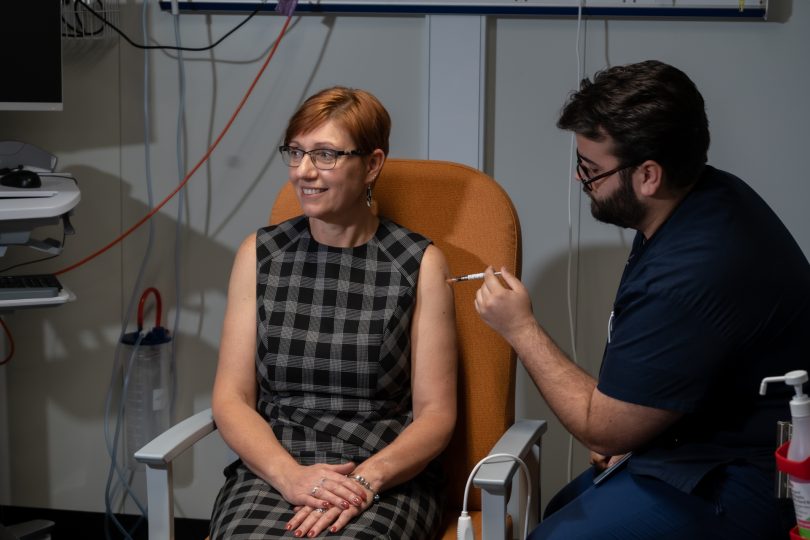
Health Minister Rachel Stephen-Smith will receive more information about increased Pfizer supply next week. Photo: Dominic Giannini.
Australia’s principal health advisory body, the AHPPC, decided against making vaccines mandatory for aged care and disability care staff in January and again last week.
Mr Barr said the ACT would need to consider whether making the vaccine mandatory for staff would end up reducing the number of people available to work, which would make the measure counterintuitive.
“If it became a mandatory requirement, would it impact workforce availability to the extent that you would be compromising the health and care of aged care and disability residents?” he said.
“Clearly, this is an area of risk and we do need to get the vaccination level up amongst this cohort of workers.”
But Mr Barr said conscientious objections are strong human rights principles that would need to be accounted for in any decision to make a vaccine mandatory for a specific cohort.
“There would always be exemptions and reasons why it would be inappropriate to have a mandatory requirement,” he said.
“We had an open mind that unless there was a compelling reason to mandate [vaccinations], then you wouldn’t. But there are certain circumstances where you would put others at risk, so you have to balance those competing rights.”
The ACT has continued to ramp up its vaccination program in line with other states and territories, extending the eligibility criteria to include 40 to 49-year-olds from yesterday.
Almost 5400 bookings were made yesterday, which smashed the previously daily booking record of 1756.
There were also almost 900 people waiting to receive a callback to book their vaccine appointment as of early Friday afternoon (4 June).
As indicated yesterday (3 June), Mr Barr said Pfizer would be increasing its supply to Australia on an expedited timeline, but further details will not be provided to Health Minister Rachel Stephen-Smith until at least next week.
The ACT receives between 6000 to 7000 doses of Pfizer a week from the Commonwealth on top of the current stock of 14,000 to 16,000.












